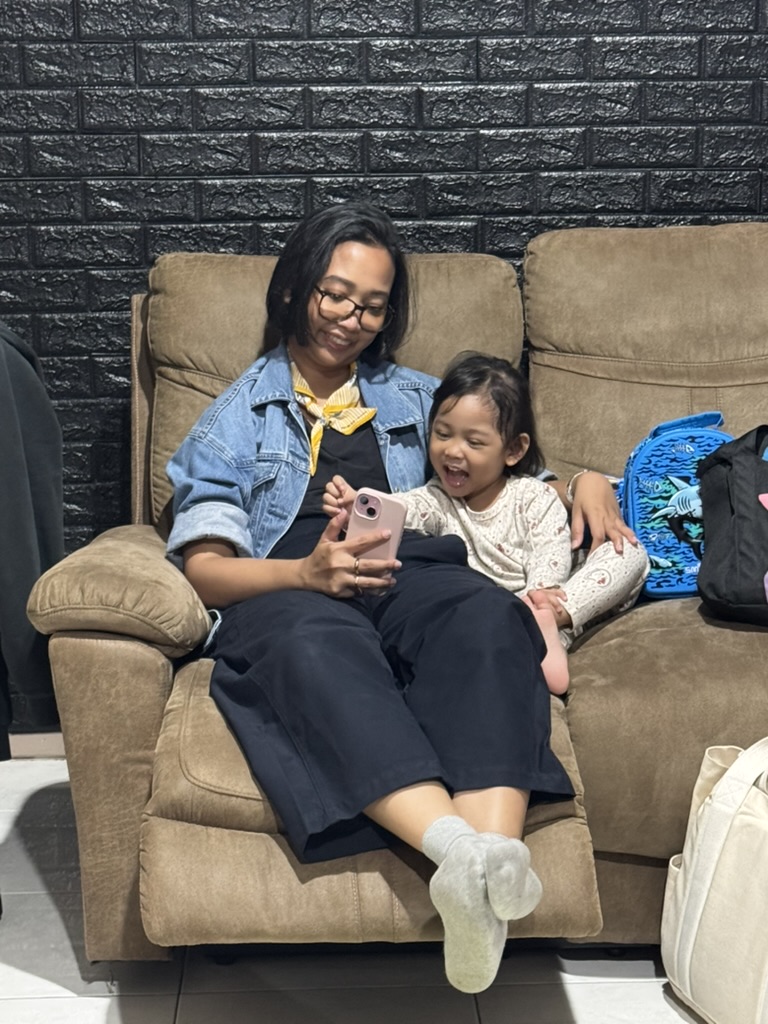This is for Nada, my radiant chaos,
and Fanny, my brilliant calm.

I still remember the first time someone told me I was "killing it."
It was over something work-related. A pitch to the regional team, if I recall. A project delivered ahead of schedule with all deliverables graded 'awesome' from the hippo (highest paid person in the room). I can’t remember the details, but I remember the jolt of pride. The flush of validation. I wanted to reply something cool like “Thanks, I’m just getting started,” but I think I ended up mumbling something self-deprecating.
Still, inside, I stood taller.
You’re killing it.
That phrase didn’t feel violent back then. It felt like praise, a badge.
It wasn’t just that one phrase, though. There's another collection, lexicon of violence that I collected along my life that weirdly interpreted as success.
Years later, I heard Ocean Vuong talk about it in an interview, on Seth Meyers. How our language of achievement, especially for men, is soaked in violence. That it teaches us our worth comes from what we can conquer, not what we can hold with care. And suddenly, it was like someone had turned the lights on in a room I didn’t know I was sitting in.
It hit something in me I hadn’t been able to name.
Because by the time I knew I needed softness, I had already trained myself out of it.
When I was young, softness had an expiration date. Boys could cry, but only when they were small. Once you passed a certain age, those tears started making people uncomfortable. Even before anyone told me to “man up,” I learned the more accepted script: laugh it off, shake it off, walk it off.
In many ways, I grew up believing that tenderness was a liability. A crack in the armor. A weakness that could (and would) be used against you.
So, I stopped offering it. I didn’t know that I was also stopping myself from receiving it.
Some part of me confused “not crying” with being okay. Confused numbness with strength. Confused being alone with being tough.
And then—I became a dad.
By the time of this essay, my daughter is two and a half.
She is truly radiant chaos.
She dances before music starts, and asks more.
She pat my hand when I drive.
She asks “why” more times than I have answers.
Her laughter could soften the sun.
Her tears could split me in half.
And every day, I feel this tug in me, this reckoning.
Because she is teaching me a new vocabulary.
And she is undoing the one I was raised with.
Last week, she falls and scrapes her knee.
I don’t say “You’re okay.”
I say, “That looks like it hurt. Do you want a hug?”
And she says yes. Every time.
Because she hasn’t yet learned to deny her need for comfort.
And I realize, I still have. I still flinch at my own need for it.
It’s strange how fast we cut softness out of ourselves. How early we’re taught that “strong” means stoic, silent, sealed off. But that’s not strength. That’s just silence dressed up as discipline.
I worry sometimes that I’ll raise her with too much of the masculinity I inherited. Not the kind that means "being a man", but the kind that made me think being hard was the only way to be whole. That emotions are either performance or threat. That survival is more important than connection.
I want to be someone who teaches her that being strong isn’t about standing tall, it’s about being able to kneel sometimes, and hold space for someone else's tears, even your own. That strength has nothing to prove and nothing to destroy.
I want her to know there’s a kind of power in vulnerability that doesn’t get celebrated enough. A kind of bravery in softness. That the kindest men I’ve ever known never had to raise their voice to make themselves heard.
I want her to grow up in a world where men don’t have to burn to prove they’re fire.
Of course, some days I slip.
I raise my voice. I get impatient. I mistake being firm for being distant. I see her mirror my frustration and I flinch, because she is watching. Because I am still learning.
But I also tell her I’m sorry.
I hold her after I snap.
I let her see me cry when I miss someone.
I let her see me hug my wife without a reason.
I let her see me afraid, uncertain, joyful, tender.
Because that’s what I never saw. And what I still wish I had.
Sometimes I wonder what kind of man I would’ve become if someone had told me earlier that I didn’t have to earn love through resilience. That I could be soft and still be safe. That tenderness was not the opposite of masculinity, it was just another shape of it.
But I’m not bitter about what I didn’t get.
Because now, I get to give it.
And every night, I make an effort to kiss her forehead, give her a tight hug, and sometimes whisper, “I love you, Nada. Sleep tight.” and then she read her favourite book with Mom. I’m also doing it for that boy in me, too. I’m doing it for the one who learned to protect themselves too early. The one who thought silence was the only way to survive. The one who didn’t know there was a different path.
We don’t talk enough about what happens to men when the only way we learn to measure our worth is through destruction.
What’s lost.
What’s buried.
What’s hardened.
But,
maybe it starts with language.
Maybe it starts with holding our children the way we were never held.
Maybe it starts with stopping mid-sentence, and find tender analogies to fill the gaps.